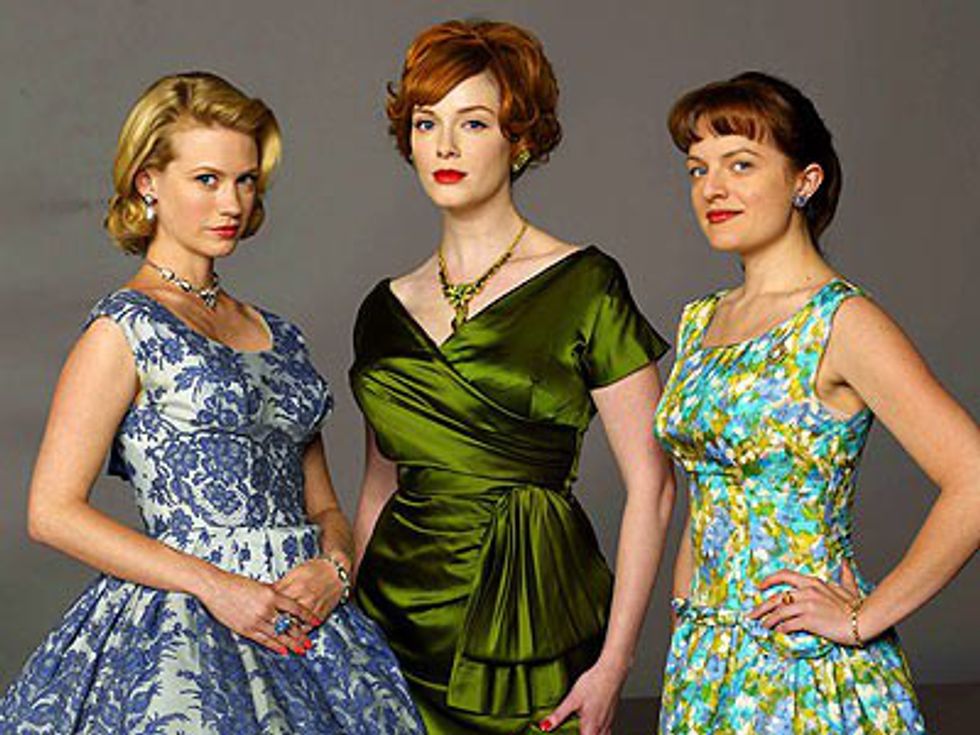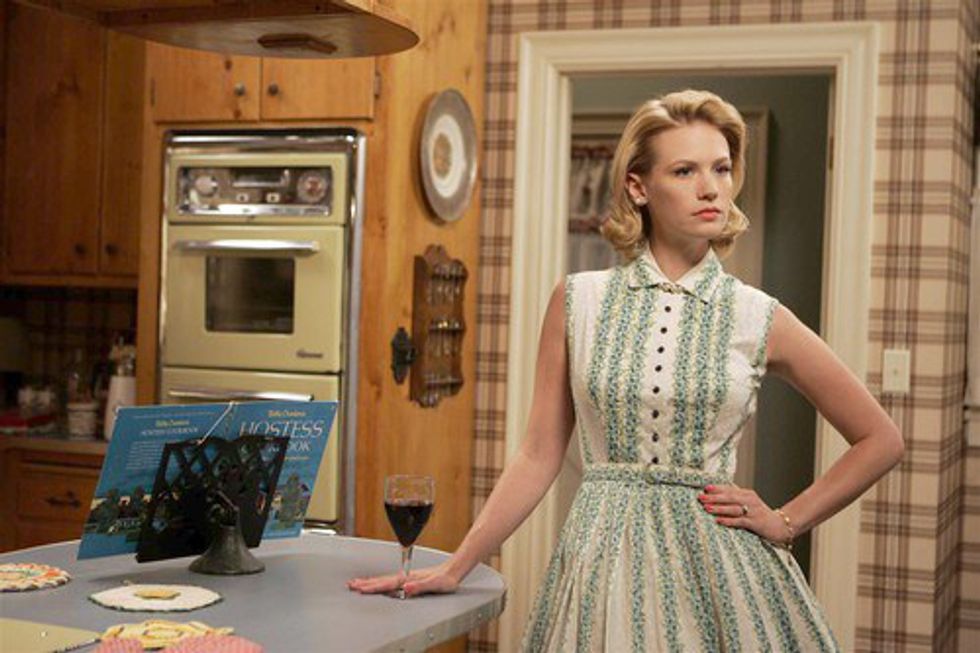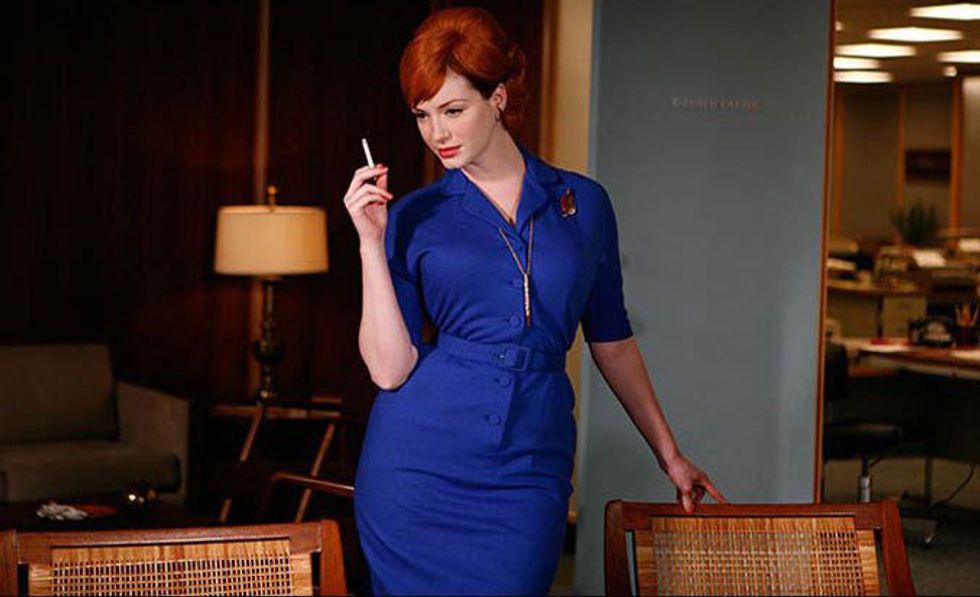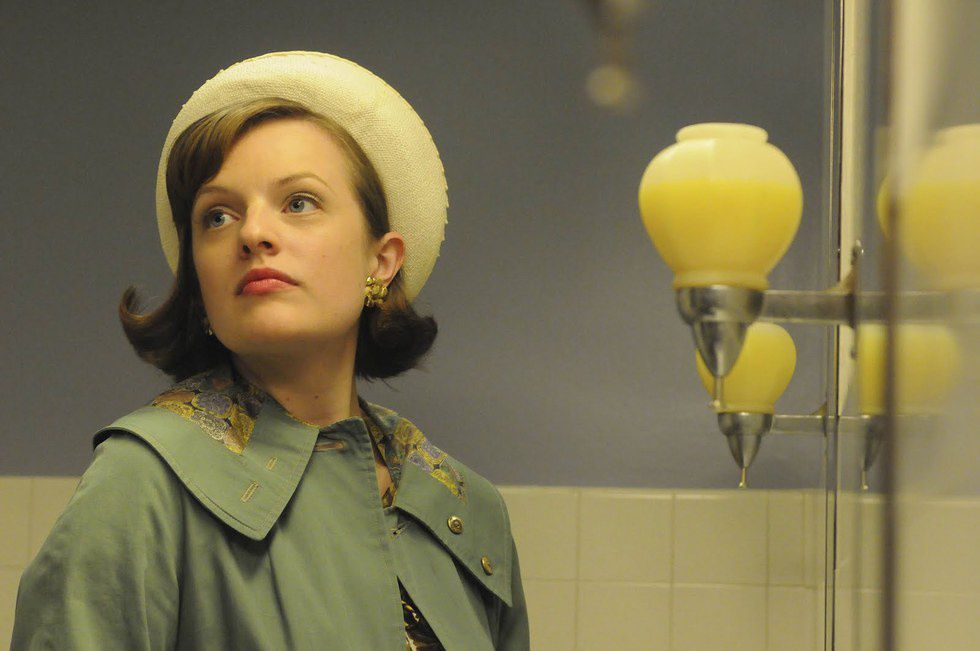The women of the show "Mad Men" are some of the most influential characters on television to date. They epitomize a time in history when women were discouraged to work a job other than a secretary, and it was not easy for them to become anything more than a housewife. The three women that I will cover in this article are in my opinion, the three most iconic women in the show, as they portray three different types of ideals. These characters are Betty Draper, Joan Hollway-Harris and Peggy Olsen.
If you've never seen or heard of "Mad Men," then you have no idea what I'm talking about so, here's a quick brief:
"Mad Men" is a television show about the ad men of Madison Avenue in the sixties (hence the title, "Mad Men"). The show provides the viewer with historically accurate depictions of all types of people and places during this time, along with different norms that were established for the era. The show introduces different controversial topics of the sixties, with the backdrop as the city. Some topics covered are sexism, racism, gender roles, gender inequality, infidelity and substance abuse. The viewer finds themselves following the main character, Don Draper, throughout his daily life, along with other characters, and gets an inside look on how the sixties really went down on Madison Avenue in Manhattan.
Ok, so let's get things started with the beautiful, blonde housewife, Betty Draper.
Betty Draper is the poster child for 1960s housewives. She's got the beautiful house, the handsome and successful husband, the two beautiful kids and she has an African-American nanny named Carla. Her life is literally what you would think of when you hear the terms "1960s housewife." However, upon further watching the show, we find out that her life is not nearly as perfect as we think it is, and that what goes on behind the doors of this seemingly "perfect" family, is in fact, not perfect at all. Throughout the show, Betty must deal with Don's infidelity, an unplanned/unwanted pregnancy, and her own affair(s), all while trying to maintain a smile for this "picture perfect" family image (ironically, Betty was previously a model when she met Don, so she knows how to smile for the camera). How she deals with the pressure of trying to maintain this image is interesting, and we see a growing frustration about her confines as a housewife.
Next up is Ms. Madison Avenue herself, Joan Holloway-Harris.
Last but definitely not least, we have Peggy Olsen.
Each of these women portray an important facet of 1960s culture, and each woman redefines her situation that defy the norms of a male-focused society. What we learn from each of these women is that you don't have to continue with the cards that you're dealt. Instead, you can reshuffle the cards and create your own game.
For further reading on each of these characters, feel free to checkout my blog I made specifically on this topic titled, Mad (Wo)Men. There are links to other sites and I share more of my opinion with a more in-depth analysis of the portrayal of women in "Mad Men." I have more stories and pictures of each, and would love to hear your input!






















